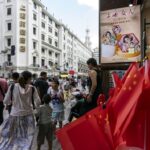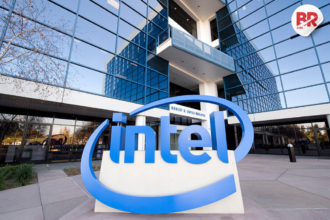
Tiananmen Crackdown Still Echoes: Fu Tong remembers.
While China forces silence, and Hong Kong bends under the weight of a national security law, one man stands defiantly in Taiwan — still speaking up, still showing up.
Fu, 43, was among the first to be charged with rioting during Hong Kong’s 2019 pro-democracy protests. After fleeing to Taiwan with his wife Elaine To, he didn’t vanish into quiet exile. He got louder.

Now, ahead of the Tiananmen crackdown anniversary on June 4, Fu is preparing public events in Taipei — the only Chinese-speaking place in the world where the massacre can still be openly remembered.
This isn’t just about one man or one country. It’s about the right to remember.
For millions, especially younger generations, the Tiananmen crackdown is history erased — blocked online, banned in textbooks, criminalized in public.
Hong Kong once held massive candlelight vigils. Today, even whispering “June 4” can land you in prison.
So when Fu says, “If I don’t do it, who will?” — he’s not asking for praise. He’s pointing to a vacuum left by fear.
In a world where TikTok teaches more than schoolbooks, Fu’s human rights exhibitions and guided tours in Taipei serve as a living archive. A protest, yes. But also a public service.
Taiwan: The Last Open Flame
Taiwan has become the unlikely keeper of the truth.
While Western cities like London and New York also mark the anniversary, Taiwan’s symbolic weight hits harder. It’s close — culturally, linguistically, geographically — to both Hong Kong and mainland China.
“When Hong Kong can’t even say it out loud anymore,” Fu says, “Taiwan becomes essential.”
The Sharp Edge of Silence
Let’s be real. China doesn’t want the world to talk about June 4, 1989.
Back then, tanks rolled into Tiananmen Square before sunrise. Protesters, mostly students and workers, were demanding reforms. Many were killed. No one knows how many — estimates range from hundreds to thousands. China still calls them “counter-revolutionaries.” No apology. No count. Just silence.
That silence? It’s the point.
Because if you can erase the past, you control the future.
A Fool’s Job — Or a Fighter’s?
Fu knows his activism won’t make him rich or famous.
But that’s not the goal.
“If I don’t step up to do things that seem foolish and unrewarding,” he says, “then who will?”
In an age of performative activism, this is the real thing.
The fact that you’re reading this? It means the memory isn’t gone yet. But memory needs maintenance. And people like Fu are keeping the lights on.












